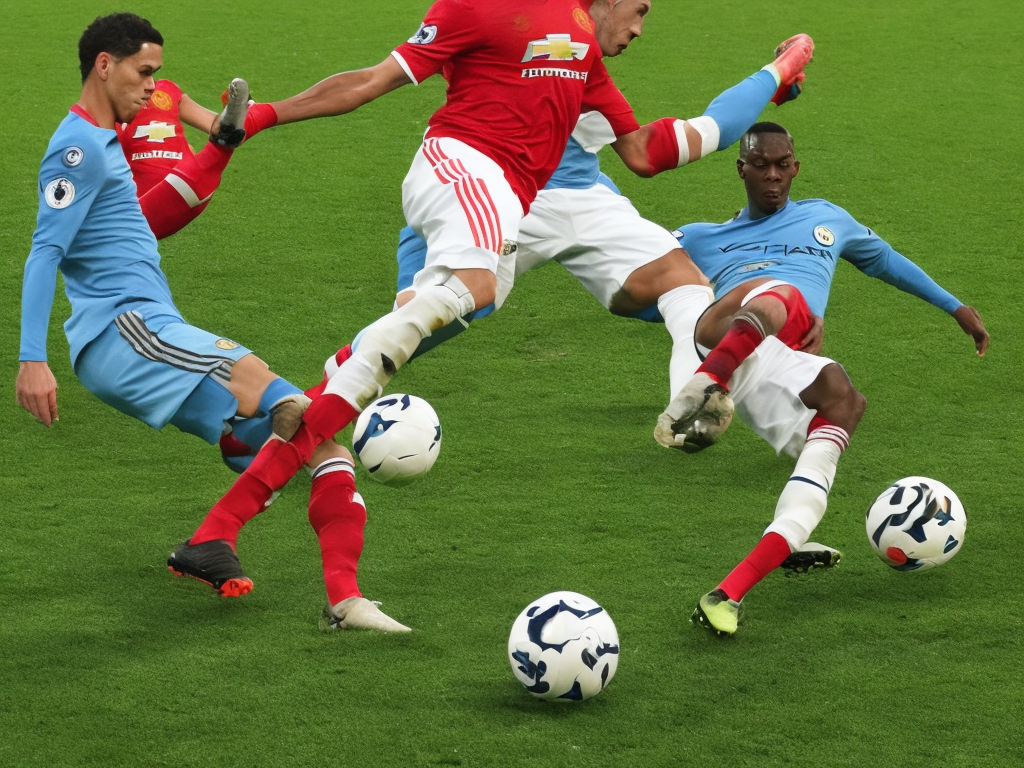
Manchester United and Manchester City may be the two biggest football clubs in Manchester, but there are several differences between the two. These differences can be seen in their history, fanbase, playing style and success.
History
Manchester United, commonly known as Man Utd, was founded in 1878 as Newton Heath LYR Football Club. The team adopted the name Manchester United in 1902 and they have since become one of the most successful clubs in the world; winning 20 league titles, 12 FA Cups, three European Cups and two Club World Cups.
Manchester City, commonly known as Man City, was founded in 1880 as St. Mark's (West Gorton) and they became Manchester City in 1894. The team has faced several ups and downs over the years; they were relegated to the third tier of English football in 1998 and then promoted back to the Premier League in 2000. Man City has won seven league titles, six FA Cups, one European Cup Winners' Cup and six League Cups.
Fanbase
Manchester United has a large and worldwide fanbase, with an estimated 1.1 billion fans globally. The team has a reputation for attracting fans who are not necessarily from Manchester or even the UK, but who have been drawn in by the club's success and playing style. This includes fans from countries like China, India and the USA.
Manchester City has a smaller fanbase than Manchester United, but it has been growing in recent years. The club's success on the pitch has attracted fans from all over the world, especially after its takeover by the Abu Dhabi United Group in 2008. However, many City fans are from Manchester and the surrounding areas and have supported the team through thick and thin.
Playing style
Manchester United has traditionally played a more attacking, fast-paced style of football, with a focus on counter-attacks and wingers. This style was epitomised by Sir Alex Ferguson's teams of the 1990s and 2000s, which included the likes of Ryan Giggs, David Beckham, Cristiano Ronaldo and Wayne Rooney. In recent years, however, United has shifted towards a more possession-based style of play under the managership of Louis van Gaal, Jose Mourinho and Ole Gunnar Solskjaer.
Manchester City plays a possession-based style of football, with a focus on playing out from the back and dominating possession. This style was introduced by former manager Pep Guardiola and has been continued by his successor, Manuel Pellegrini and current manager, Roberto Mancini. City's style relies on technical players such as Kevin de Bruyne, David Silva and Bernardo Silva, who are able to create chances and control games.
Success
Manchester United has been one of the most successful football clubs in the world, winning more than 60 major honours in its history. The team has won more league titles than any other English club and has been crowned champions of Europe three times. Manchester United has also won the Club World Cup twice, as well as numerous other domestic and international trophies.
Manchester City has had a relatively successful period in recent years, winning seven league titles since 2012. The team has also won several domestic titles, including the FA Cup, League Cup and Community Shield. Manchester City has yet to win the Champions League, however, and it is seen as the one major trophy that the club is still lacking.
In conclusion, while Manchester United and Manchester City share a city and a rivalry, there are several differences between the two clubs. United has a larger and more global fanbase, a more attacking style of play, and a long history of success. City, on the other hand, has a smaller fanbase, a possession-based style of play, and has enjoyed success more recently. While both teams have their strengths and weaknesses, there is no denying that they are two of the most exciting and competitive football clubs in the world today.
 Self-Instruct
Self-Instruct